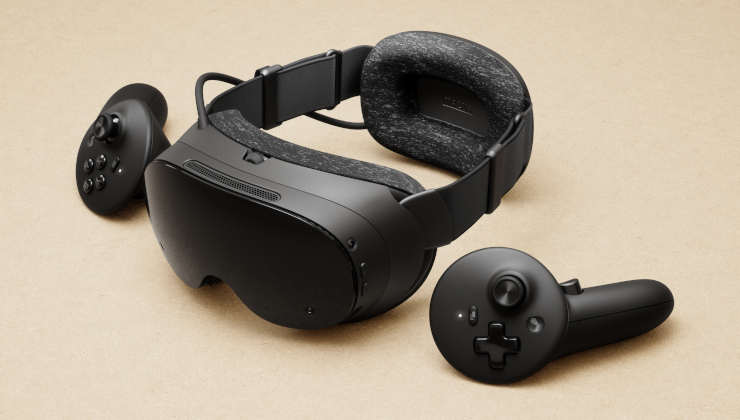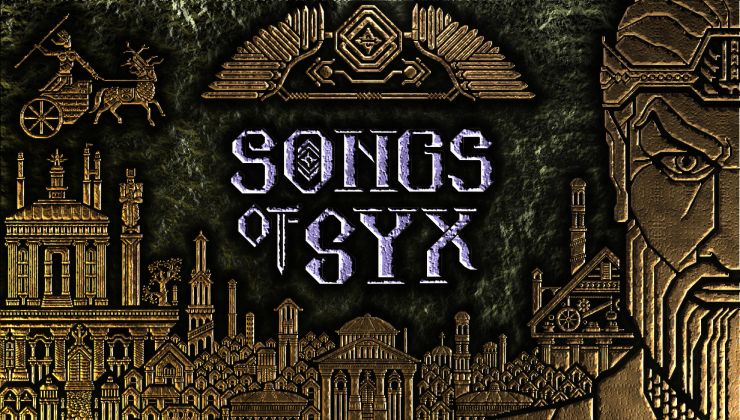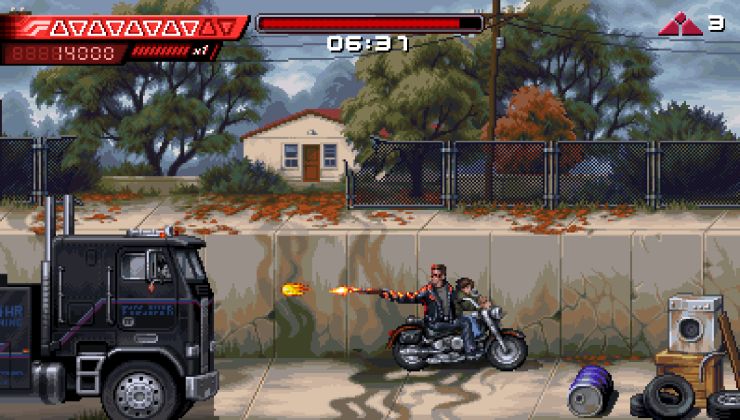Arcen Games developers of AI War, The Last Federation, Bionic Dues have said they're no longer doing Native Linux support for their upcoming game Heart of the Machine and will instead rely on Proton.
What is the game? "Heart of the Machine is a near-future sci-fi colony city-builder in reverse — you are the first sentient Machine Intelligence in an established world rather than starting from nothing. No one knows you exist (yet), and this allows you to operate from the shadows by manipulating the human population for whatever purposes your programming has in mind. The twist is that whether humans live or die does not determine your victory."
This comes from a Steam announcement posted on August 11th, where they mentioned they plan to get it Steam Deck Verified as they're routinely testing it and Chris from Arcen Games spends "about 99% of my own gaming on that platform these days. It's a priority for me".
So why are they dropping Native Linux and going with the Proton compatibility layer? They said they found it performs better with Proton, looks better, has better frame timings and so Valve "strongly suggested we ditch the native version in that case". Going into more detail on the problems with their Native Linux build in Unity:
- Performance was 10% worse, and frametimings were less even, but it was certainly playable. This was just how Unity 3D works in Vulkan on Linux, so there was no way to solve it.
- Certain parts of this game have geometry that is close together, and on Linux these would flicker. This is because Unity 3D does not support a reversed z-buffer on OpenGL or Vulkan (or DirectX9). This problem is not present in DirectX11+, or Metal. And it’s not present when Proton or WINE convert DX11 commands to Vulkan.
Other than that, everything was the same on Linux as it is on Windows or OSX. We’ve had a native Linux build of this game for its entire life up until recently, just as all of Arcen’s titles have had a native Linux build for the last decade.
So this all feels very strange. But Unity 3D’s support for Linux, and in particular their implementation of Vulkan, is notably inferior to what is going on with their support for DirectX11 and Proton/WINE’s ability to bridge across.
They believe it's the best way right now for their games, because "If someone has an incompatibility, we can't change the engine" and that "Valve has been more on top of things than Unity".
It's due for release this year and you can follow it on Steam.
This is because Unity 3D does not support a reversed z-buffer on OpenGL or Vulkan (or DirectX9).That explains a lot. But why!?
Well, I mean, that’s kind of how I feel, is that it’s not a good look.Ultimately, the takeaway is that there's nothing wrong with Vulkan. It's just that DXVK does a better job of writing Vulkan calls than commercial game engines like Unity.
Ultimately it comes down to who supports that platform better: unity or Valve? The answer is hands down Valve.
If that were to change, it’s not a big deal to add native linux support back. This is the first game I’ve done in the last decade without said support, and it feels odd.
But I also recognize that for every game I’ve released with a native linux build, if you switch to using proton instead, you get a better experience. In general with almost all games that are Deck compatible, the proton version runs better.
It’s a truly odd timeline in some respects, but on the other hand if Linux was ever going to go truly mainstream, it was going to have to do so with compatibility at a very low level. I’m more amazed that it has turned out to be possible and so performant across the board.
It reminds me the whole "proton is bad for linux gaming" argument.
As proton gets better and better, we see more and more games dropping their linux build in favor of a proton-compatible windows build (either silently not supporting it well or explicitly like here).
All of this happens while linux share is growing.
It would be fine if it didn't make us very dependent on Valve's strategy to support proton.
Valve really needs to overhaul the platform preference system. Maybe optionally show Steamdeck verified games as well as native games.
Last edited by usrtrv on 14 Aug 2023 at 3:52 pm UTC
Arcen Games are very dedicated to their craft. I played AI War 2, had much fun and bought it twice in the end with all of the DLC just to support such an amazing company. They have a very active community on Discord, their patchnotes are verbose, top-notch and patches are plenty. They are very serious about linux. I remember when they wrote a multiplayer component to AI War 2 they spent some time to tackle the issue of crossplatform play - they added multiple frameworks so no one will feel excluded (in the age of aggressive cost-and-feature-cutting). Yes, they are not alone and there are some games that do that, but I feel that it should be pointed out and cheered.
And just look at [this page](https://wiki.arcengames.com/index.php?title=Category:AI_War_2:_All_About_Multiplayer#Multiplayer.2C_At_A_Glance) (or any other on their website) isn't it great? I have never seen anything like that level of deep-dive overview, ever.
I hope they will not get any flak for this decision and I wish them the best
popular AAA games.
Quoting: DMJCEven the big boys like ID software don't bother supporting it anymore.That's a very weird statement since it seems to imply that this is a recent development. ID software stopped supporting native Linux before the release of Rage with John Carmack stating that wine support was getting good enough so that native release wouldn't be necessary anymore. Note: Rage was released 2011. Back then wine was not as good as it is now and the direct x translation dlls did not exist.
Quoting: DMJCLinux native gaming is basically dead. Even the big boys like ID software don't bother supporting it anymore. Emulation seems to be the developer's choice. Most of the native games are community ports of sourcecode releases or fan remakes of older
popular AAA games.
Quoting: KlaasThat's a very weird statement since it seems to imply that this is a recent development. ID software stopped supporting native Linux before the release of Rage with John Carmack stating that wine support was getting good enough so that native release wouldn't be necessary anymore. Note: Rage was released 2011. Back then wine was not as good as it is now and the direct x translation dlls did not exist.And Microsoft owns id Software these days, so there's that, too... :wink:
Last edited by Pengling on 15 Aug 2023 at 10:37 am UTC
Quoting: DMJCLinux native gaming is basically dead.It isn't, though. On the anecdotal side you can look at cases like this, but then you can also look at several GoL headlines just in the last few games about games that included native Linux, including a couple where I thought "Really?"
The stats, though, seem to show quite a lot of Linux games being released on Steam. Doubtless none of them are AAA, but that's pretty much how it's always been. I myself have been somewhat surprised that this is the case; I was expecting a serious dip from the rise of Proton. But it seems as if general interest in the platform has risen enough to more or less offset that.
Last edited by Purple Library Guy on 15 Aug 2023 at 1:49 pm UTC
VS
an proprietary game, runing on top of an proprietary game engine runing on an closed api runing on top of an good translation layer that make the game run on an opensource operating system: linux
we just missed one layer of "free" code , its not a deal breaker.
if something like godot decided that its not worth anymore to make linux a first class citizen from its engine then we should worry.
we have to lose some battles to win an war, we have to pick and chose what battles we need to win, its not worth to boycot an game for an decision like that, or boycot proton in general, the no tux no bux strategy wont make a difference for the general market, growing linux share should be our priority then we can fight the smaller battles.














 How to setup OpenMW for modern Morrowind on Linux / SteamOS and Steam Deck
How to setup OpenMW for modern Morrowind on Linux / SteamOS and Steam Deck How to install Hollow Knight: Silksong mods on Linux, SteamOS and Steam Deck
How to install Hollow Knight: Silksong mods on Linux, SteamOS and Steam Deck